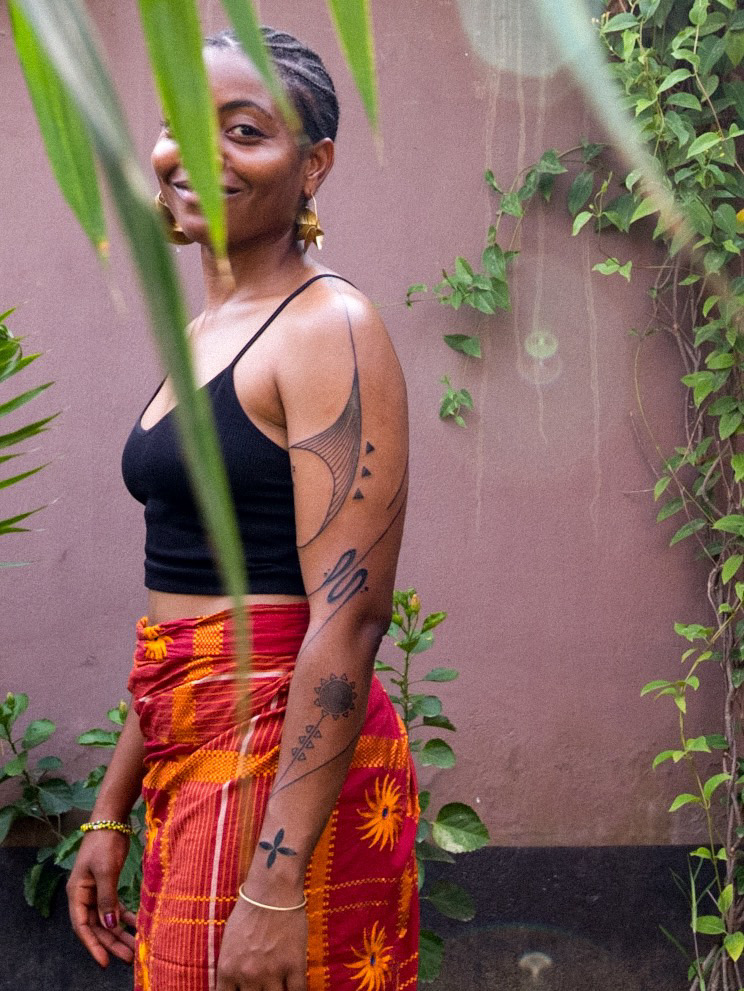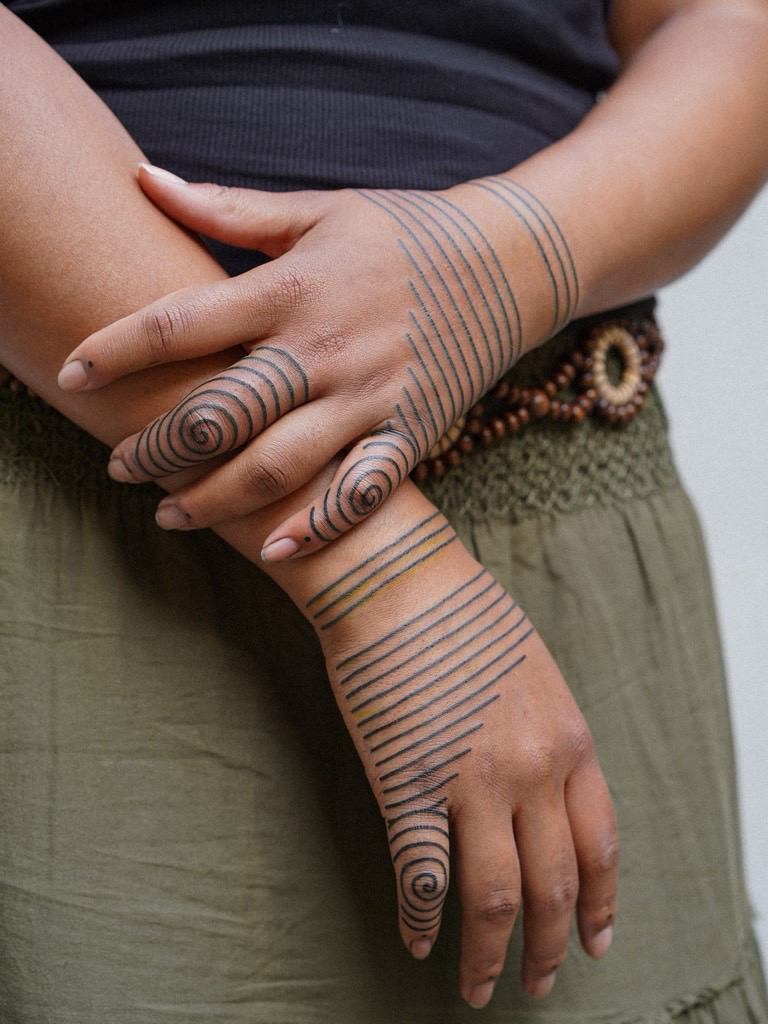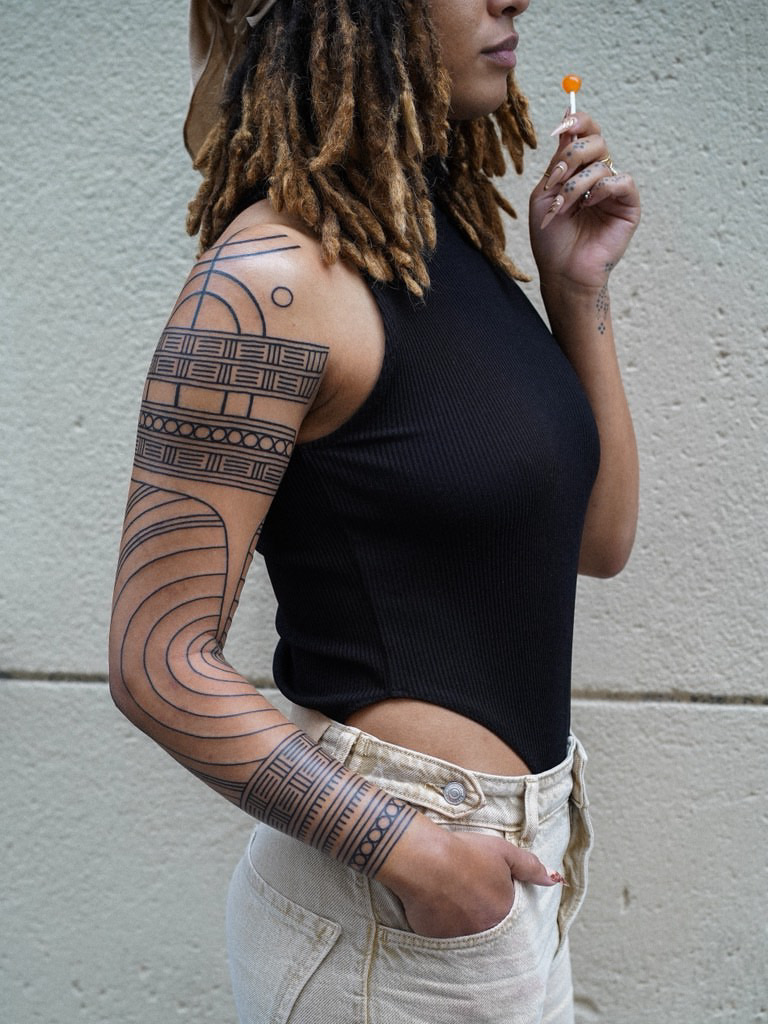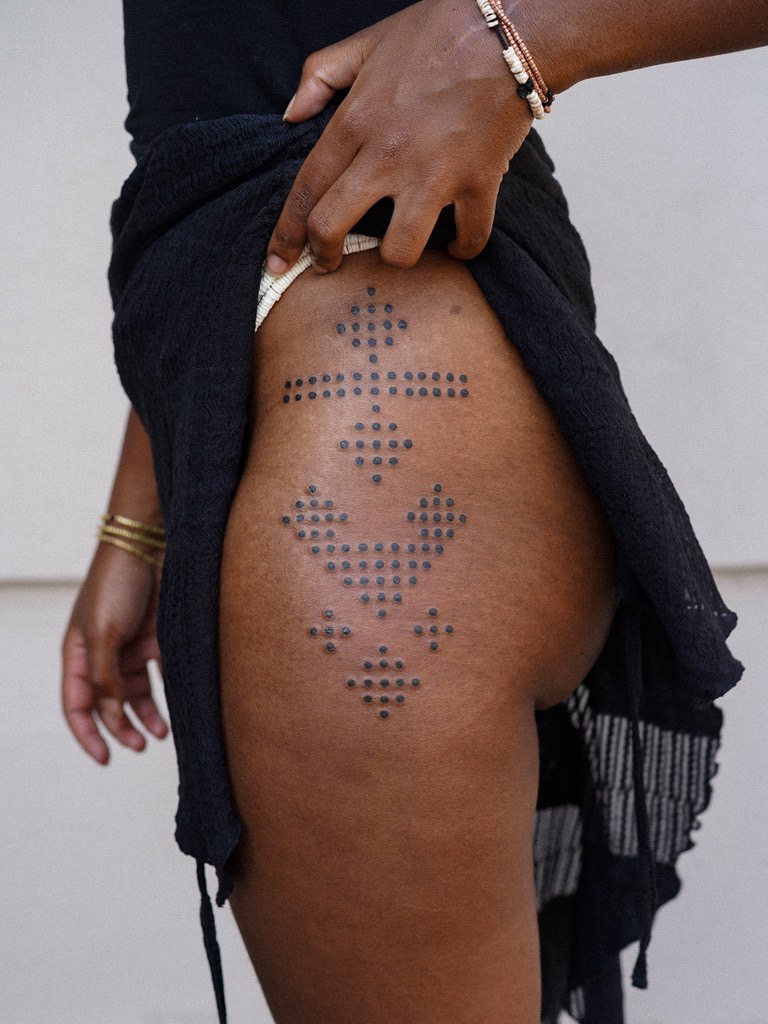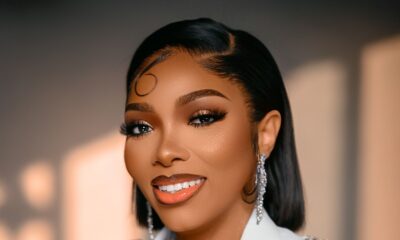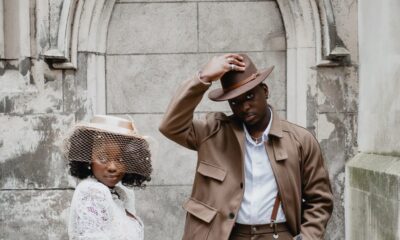Beauty
Tattoo Artist Emmanuel Uchenna Item Wants More Africans to Wear Their Heritage On Skin
Body art has always been a lot more than decoration. Various cultures told stories with them, used them as a form of belonging, identity, and survival. For Emmanuel Uchenna Item, a 30-year-old Austrian-Nigerian tattoo artist, tattoos are a way to bridge worlds. His work draws heavily from West African heritage, particularly the ancient script of Nsibidi or Uli and other tribal symbols, reimagining them in contemporary forms.
Born and raised in Vienna to an Austrian mother and a Nigerian father from Afikpo, Ebonyi State, Item spent nearly ten years in Berlin before returning to his ancestral home in 2024. Through his tattoo art, he not only reconnects with his Igbo heritage but also offers Africans and those in the diaspora a powerful, permanent way to wear their culture with pride
In this interview, Emmanuel talks to us about his roots, the evolution of his art, and the legacy he hopes to leave.
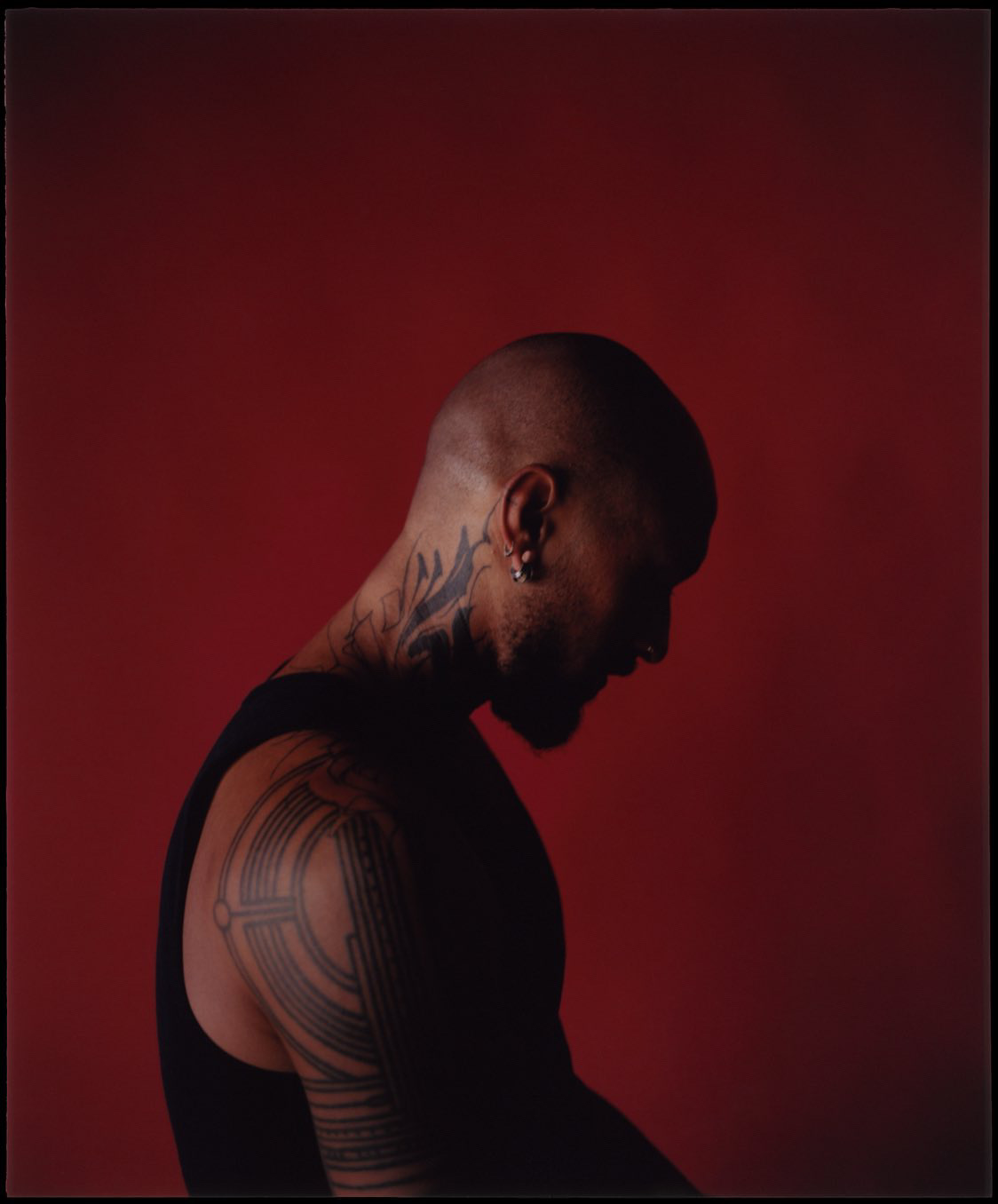
Emmanuel Uchenna Item
Hi Emmanuel, how are you today?
Really good. Thank you for having me.
Awesome! To begin, tell us who Emmanuel Uchenna Item is beyond the tattoo machine
I am a 30-year-old creative born and raised in Vienna. My mom is Austrian from Vienna, my dad Nigerian from Afikpo, Ebonyi State. I lived in Berlin, Germany for almost 8 years in total and moved back to my hometown last August 2024. I travel quite often to explore different cultures and get inspired.
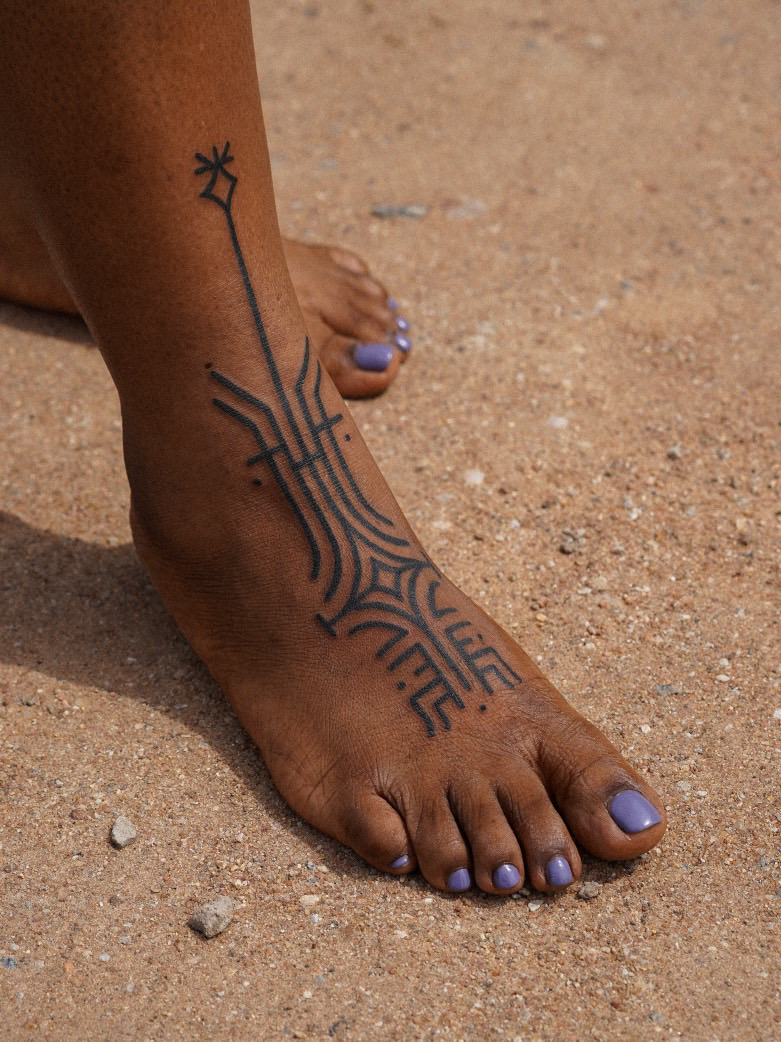
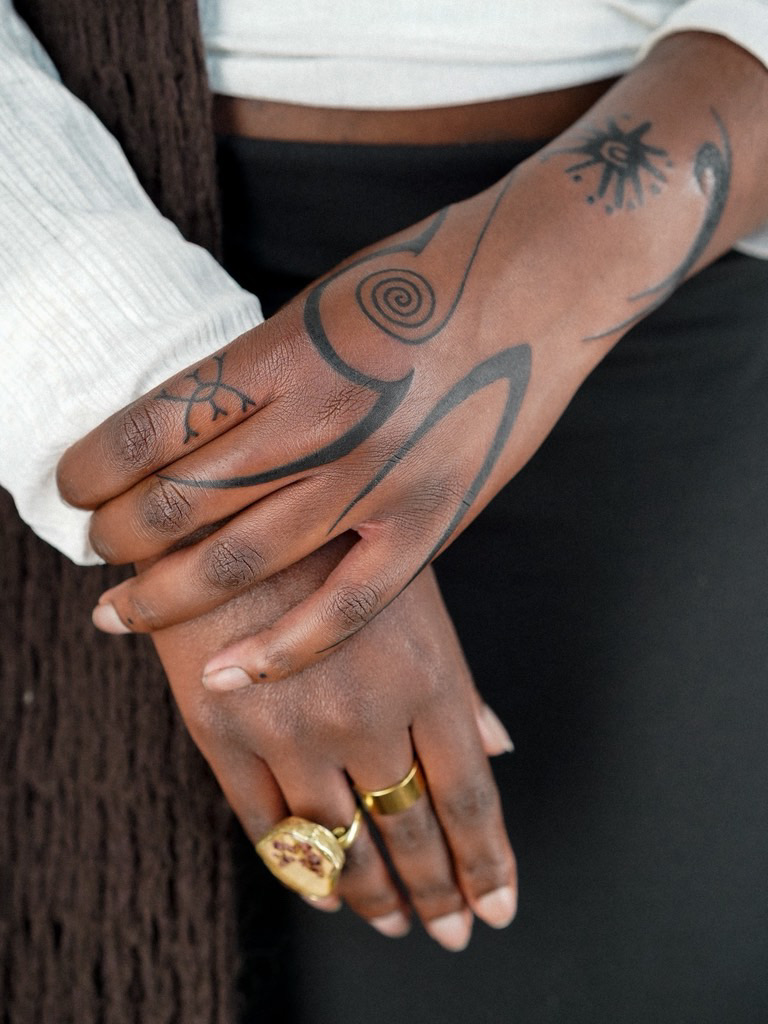
Your work blends tattoo art with African heritage. How did you discover that this was the path you wanted to take?
Mainly because of my own process of reconnecting with my Igbo-side. I haven’t been to Nigeria for many years, so few years ago when my father remarried in the village, I started to go back there and since then, I go every year for several months.
At that time, I’d started to tattoo. So once I was in Nigeria, I looked for any interesting visuals that might inspire my work. Another main factor was one of my mentors, Roberto (@pantarei), who is also a tattooist and taught me everything about tribal tattooing that I know now. He pushed me and motivated me to explore West African tribal tattooing.
That’s amazing. Nsibidi or Uli and other traditional symbols are rich in history. How do you approach weaving these sacred designs into modern beauty and fashion?
Firstly, I treat my work and every part of that with respect. I believe the intention of everyone involved is very important to honour the past of our forefathers.
In my work, I usually take the inspiration of, let’s say Nsibidi or Uli, and create something new in a modern context of contemporary tattooing. It’s important to understand that I do not replicate the original practice; but rather a new creative way to express an idea.
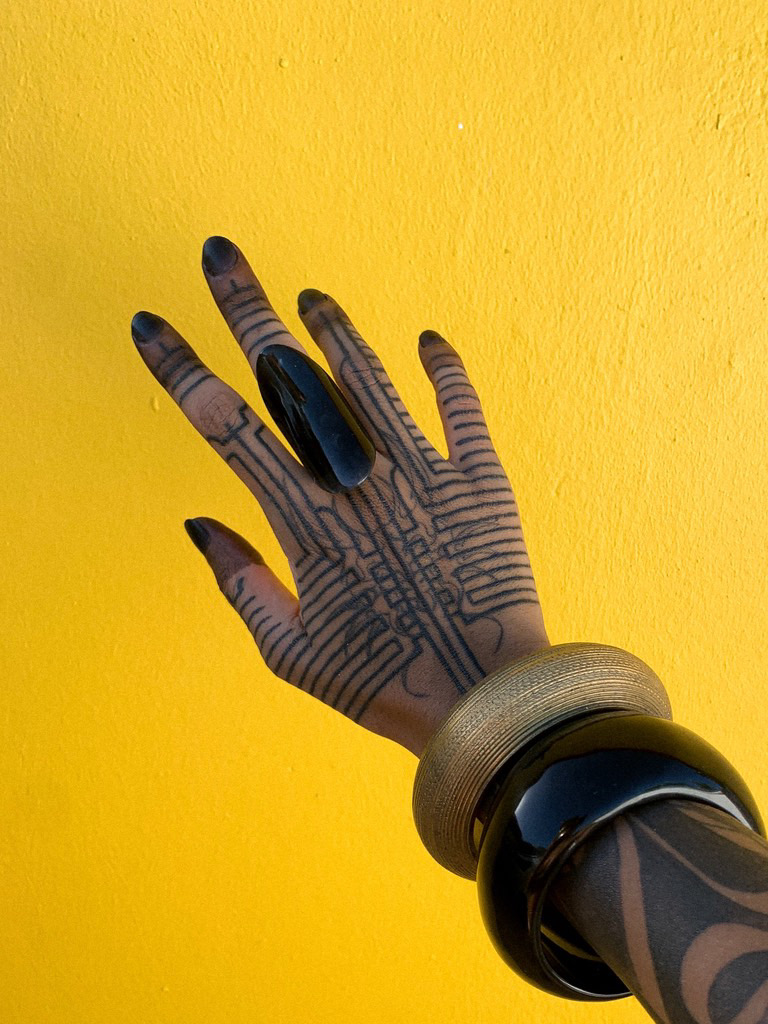
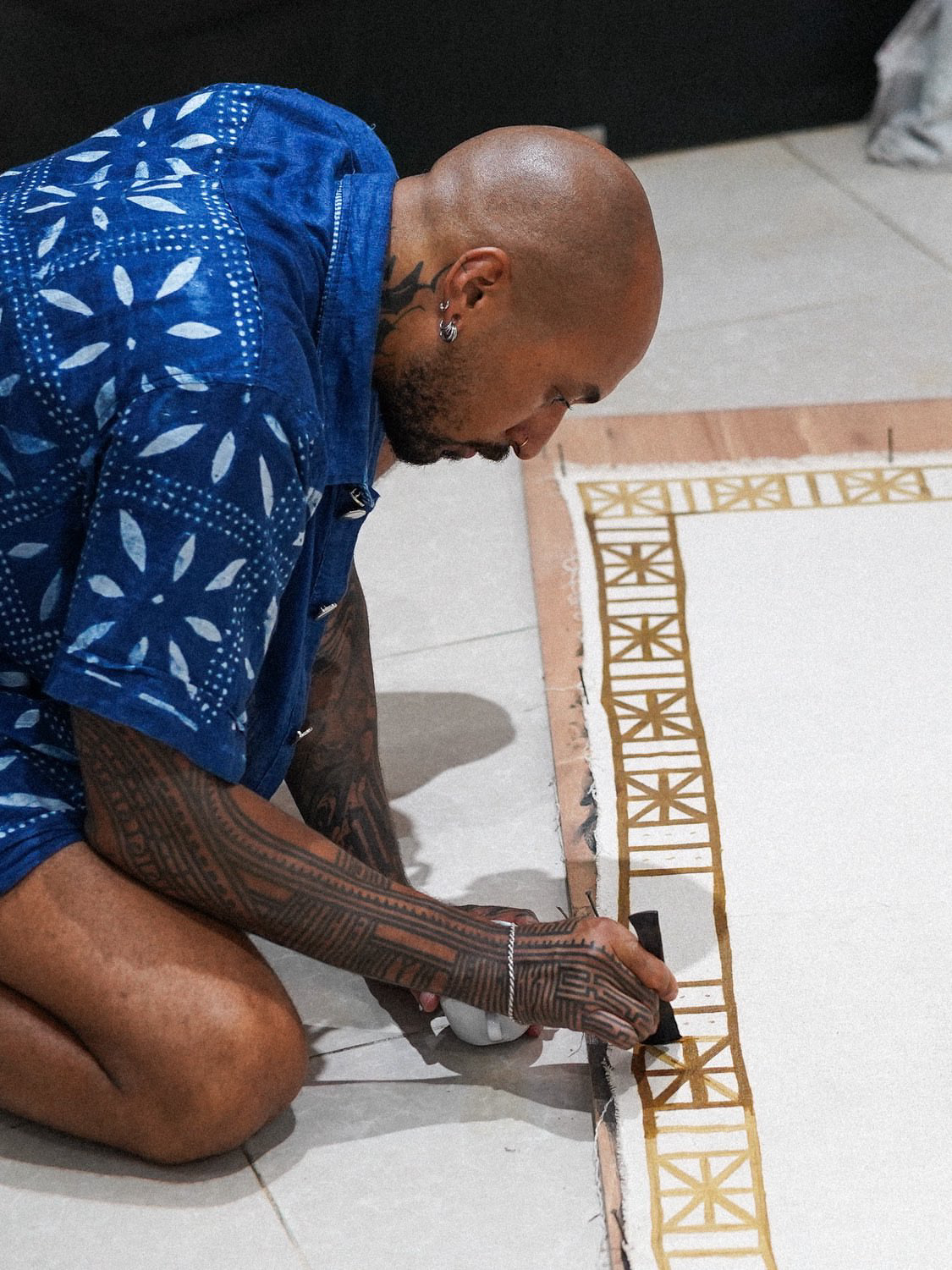 Growing up in Vienna and now working in Berlin, you’ve lived at the intersection of cultures. How has this shaped your sense of identity and the way you create?
Growing up in Vienna and now working in Berlin, you’ve lived at the intersection of cultures. How has this shaped your sense of identity and the way you create?
As mentioned earlier, I left Berlin last summer. I think Germany and Austria are quite similar in cultural aspects. Berlin was definitely a very fertile foundation to learn and grow into the artist I am now. Being away from Vienna and now being in my hometown and traveling around the world made me appreciate the place I grew up a lot more.
It’s like I have left to learn and study and now I came back to unpack my knowledge and skills at my home.
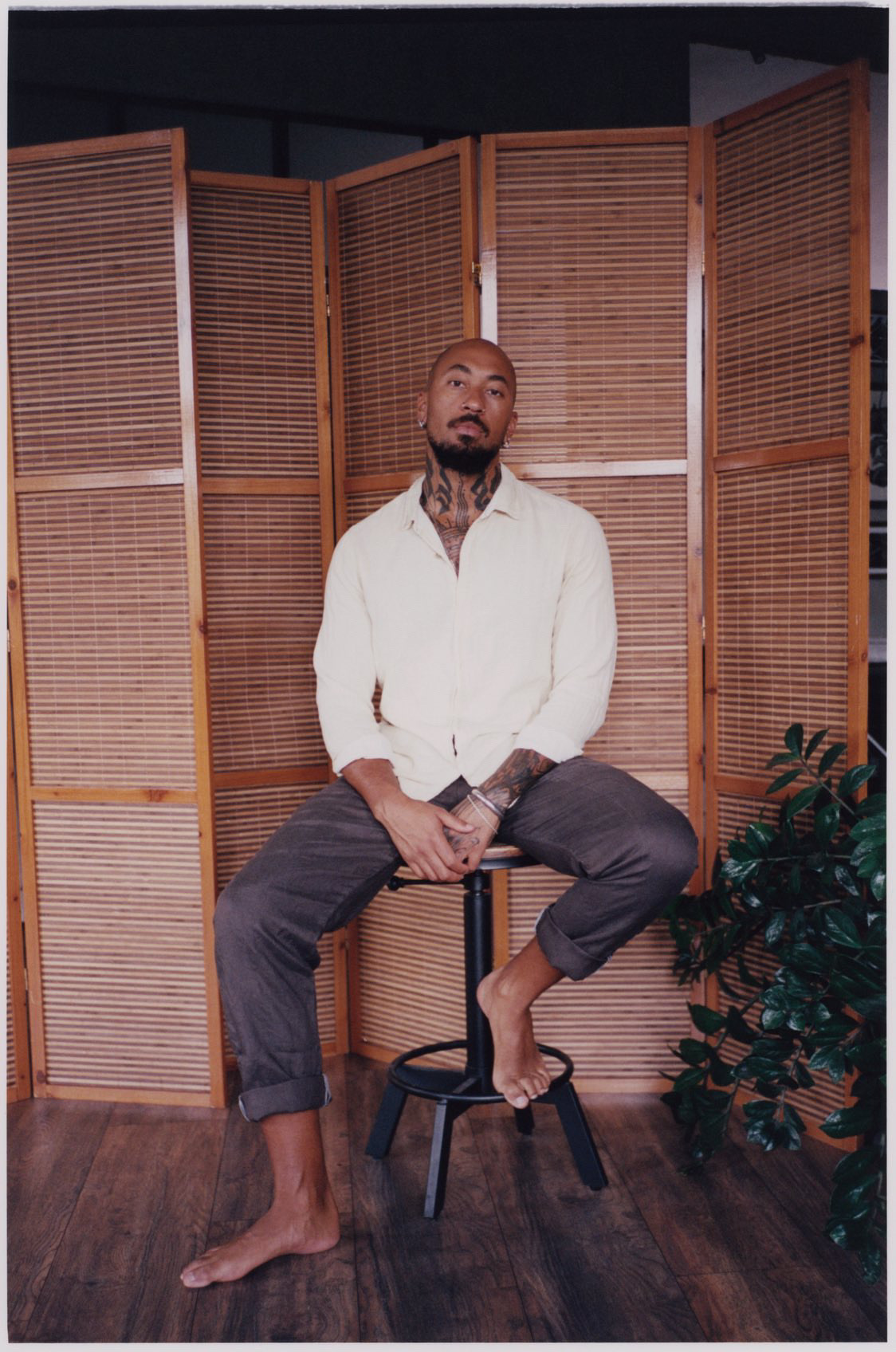
Emmanuel Uchenna Item
Tattooing can be such an emotional process. Can you share a memorable story of a client who felt transformed by carrying your art on their skin?
I have recently tattooed a man who got stabbed in his home in Abuja, when robbers tried to get a hold of his daughter. Because, obviously, he did not let it happen, they stabbed him several times in his back and belly. He lived many years with it, but recently decided to get tattooed by me.
The idea was to camouflage the leftover scars with scarification-alike marks, formed in a specific patterns on his back. We then also added some Nsibidi sigils to it.
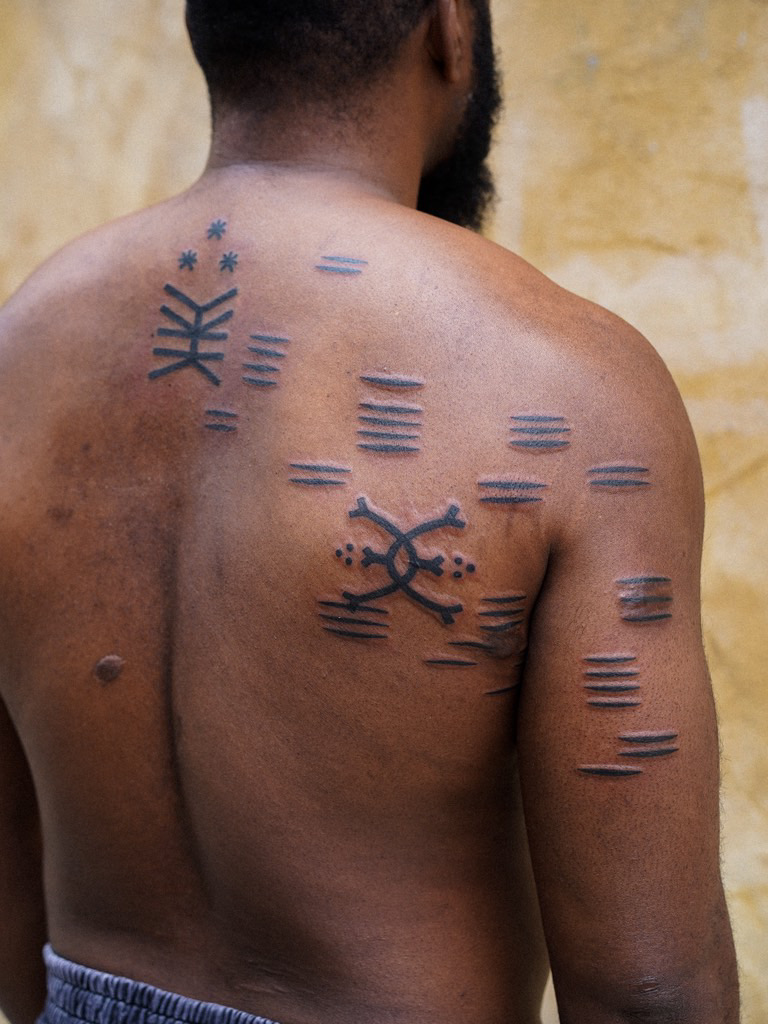
That’s such a profound way to carry a really strong story
Indeed, it is.
Looking ahead, what impact do you hope your African-inspired tattoo movement will have, not just within the diaspora, but on how the wider world views beauty, culture, and self-expression?
Honestly? I hope everyone will see Africa as a main player in the modern tattoo world. As so many other areas, the tattoo industry is one where dark skinned people are not well represented for no reason.
I hope, firstly, that more artists of any skin colour will tattoo more black skin in general, so through that, black clients will feel more comfortable to go and get tattooed. Then, also, I hope that the tattoo culture in Africa will rise and people won’t see it as something bad to decorate your body.
There needs to be a higher frequency between Africa and the other continents to exchange insights, quality standards and skills. Ideally, my vision would be to leave a legacy where anyone around the world can recognise African tribal tattoos as an art form and tattoo style.
